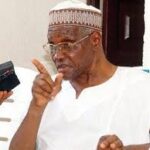What Nigeria has lacked in its recent history is a leadership with a vision and a sense of enlightened self-interest. The idea of enlightened self-interest is simple, by serving the common good of society, the leadership serves their own interest of getting legitimacy, respect and even the material gains they seek.
The alternative approach is approaching leadership on the basis of greed and myopic selfishness. This approach has negative consequences as the group suffers loss as a result of conflict, decreased efficiency and productivity. The result is costly for the group as each individual pays for the protection of their own interests. Of course in such a context a few greedy individuals might make enormous personal gain to satisfy personal their greed but the majority of the members of the community experience net personal loss.
Over the past decade, a handful of Nigerians have joined the Forbes list of the richest people in Africa while the incidence of poverty in the country over the period has increased from 54% to 70% of the population. We have a leadership that has sacrificed the long-term benefits of the people for the short-term benefits of a few. We have just been told for example that following the leaked letter of the Central Bank Governor to President Jonathan billions of dollars are missing. There is a big argument over the numbers but even if we accept the smallest amount – $10.8 billion as against the original amount of $49.8 billion, it is enough money to lift at least 30 million Nigerians out of poverty.
Today, the story is that $8.49 billion was used to pay petroleum subsidy. This is preposterous. Petroleum subsidy is not paid out of “missing” money. It is budgeted for and paid through regular governmental machinery supervised by the Ministry of Finance. When someone steals billions of dollars, that person and five generations of their children and great great great grandchildren will not be able to spend the money in their lifetimes. It’s a display of evil greed.
The core problem in Nigeria is that we are simply not being governed. For months now, 12 ministerial positions have been vacant and the obvious conclusion for me is that if the nation’s revenues are being stolen at the source, then you do not really need ministers because all ministers do is pay salaries and allowances.
After his election in 2011, President Goodluck Jonathan went on retreat at the Obudu Ranch and promised the Nation that he would form his cabinet within one week of his being sworn into office. He said that the choice of the Federal Executive Council would not be the result of intense horse-trading within the ruling party. The cabinet did not emerge for months and when it was finally announced, it was clear that the PDP horse-trading had occurred.
This was unfortunate, as he did not need to do that because our Constitution is clear in Section Five that executive powers are vested in the president and he can exercise the powers directly or through his Vice President or ministers. Executive power is exercised by the president and through a cabinet he chooses, based on the belief that they have the skills and competence to execute his programme. It was an abdication of constitutional responsibility to hand over this power to state governors and the ruling party barons to choose ministers.
From the moment that the President was unable to keep to his Obudu promise, the hawks within the ruling party basked in the confidence that it was going to be business as usual. Within months, we discovered that the Government had drawn down our excess crude account from over $6 billion to a paltry $500 million, with little to show for it. The president’s transformation agenda was dead on arrival.
One of the key sectors in which Nigerians were promised transformation would occur was the power sector. The president’s power man at that time, Barth Nnaji, explained to the Senate during his ministerial confirmation hearing that he would be able to stabilise power supply by adding 2,000 megawatts by 2012 raising supply to 5,000 megawatts. Of course we are a nation of very short memories. The National Assembly power probe revealed to the country that former President, Olusegun Obasanjo, spent $16 billion on the power sector.
General Obasanjo swore to Nigerians that by December 2007, Nigeria would be generating 6,000 megawatts of electricity through his National Independent Power Programme alone. It did not happen. Yar’Adua and Jonathan who took over the programme never explained to Nigerians why they did not deliver on the promise as inheritors of the Obasanjo administration. They spent billions more dollars during their four years and electricity supply has remained between 3,000 to 4,000 megawatts for the past 15 years.
The lack of a sense of enlightened self-interest is brazenly displayed today by the inability of the President to resolve the crisis within his own ruling party. From all indications, the party has a leadership that has not only alienated key stakeholders but is leading the party to total disintegration. As the crisis worsens, the President watches and smiles.
Today, the only chance for the PDP to remain in power is if APC disintegrates over the key question of nomination of a presidential candidate. The barons of the APC who lose out in their party’s nomination contest are likely to run back to the PDP as the culture of greed continues to govern our politics.
The first sign that President Goodluck Jonathan was not focused on governance emerged before his inauguration. In his pre-inauguration lecture given by Professor Ladipo Adamolekun at the Ministry of External Affairs on May 26, 2011, President Jonathan publicly declared that four years “is too short to implement any meaningful agenda.”
At that time, it was not clear that he had formally promised his party barons that he would spend only one term in office. That was why we were surprised when he floated the idea of a six-year Presidency even before his inauguration. Today, as he approaches the last year of his tenure, the issue on the agenda is the national conference that would rework the Constitution.
The beginning of political wisdom in Nigeria is to refrain from believing pronouncements by incumbents on their plans to vacate office. After the civil war, Yakubu Gowon announced he would vacate power in 1976. In 1974 he reneged on his commitment. General Gowon thought that the country would collapse without his personal leadership. He was wrong and was shown the way out. In 1986, Ibrahim Babangida initiated a major political reform agenda that raised high hopes for democratic development in the country.
The report of the Political Bureau and the constitutional drafting process that he initiated created a blue print for return to democratic rule. Rather than ride into historical glory by keeping to the agenda, he delayed transition until he was shoved aside.
Then Sani Abacha came and promised to be different from Babangida. He committed himself to organising a quick transition to democratic rule and reneged. Abacha died and Nigerian citizens as well as democratic forces the world over heaved a sigh of relief as General Abubakar became our greatest democratic hero for ushering in the Fourth Republic in a non-manipulative transition process.
General Obasanjo returned to power in 1999 in a groundswell of optimism that Nigerian leaders have learnt their lessons and would henceforth respect the desire of the Nigerian people for the respect of the rule of law, democracy and federalism. Obasanjo spent seven years trying to change the Constitution to a single six-year term, which he fully expected to benefit from. He failed President Jonathan has the constitutional right to contest in 2015 and should go ahead if he so desires. What he should not do is to turn the national conference into an arena to extend his rule through a doctrine of necessity or any other ruse.
 Join Daily Trust WhatsApp Community For Quick Access To News and Happenings Around You.
Join Daily Trust WhatsApp Community For Quick Access To News and Happenings Around You.


